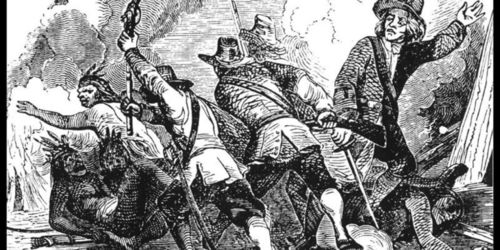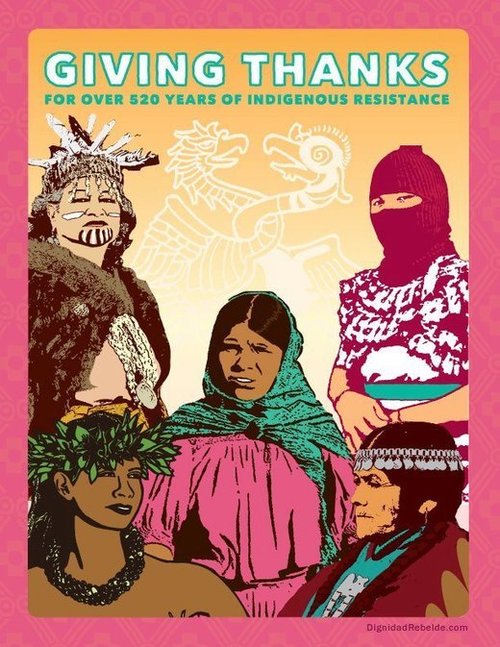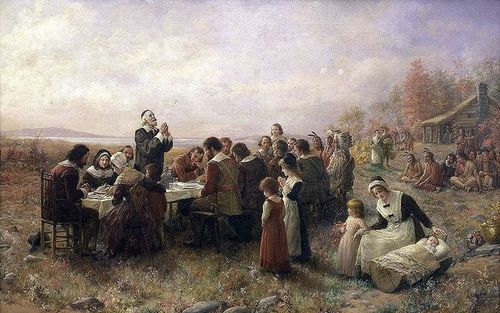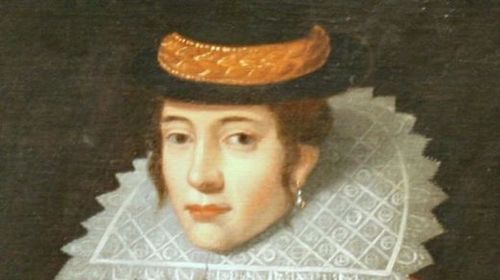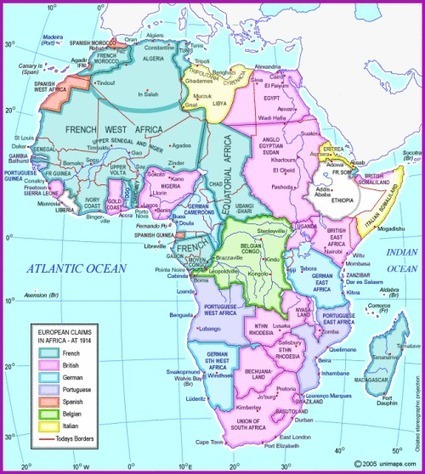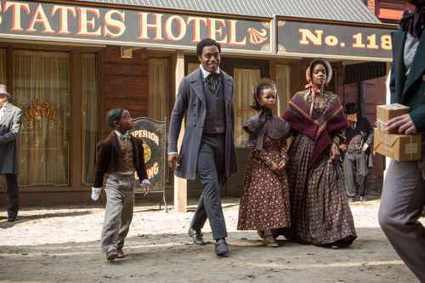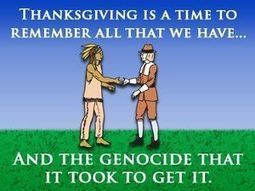
By Laura Elliff, Vice President, Native American Student Association,
Republished from Republic of Lakotah
…
“Was Thanksgiving really a massacre of 700 “Indians”? The present Thanksgiving may be a mixture of the 1621 three-day feast and the “Thanksgiving” proclaimed after the 1637 Pequot massacre. So next time you see the annual “Pilgrim and Indian display” in a shopping window or history about other massacres of Native Americans, think of the hurt and disrespect Native Americans feel. Thanksgiving is observed as a day of sorrow rather than a celebration. This year at Thanksgiving dinner, ponder why you are giving thanks.
William Bradford, in his famous History of the Plymouth Plantation, celebrated the Pequot massacre:
“Those that scraped the fire were slaine with the sword; some hewed to peeces, others rune throw with their rapiers, so as they were quickly dispatchte, and very few escapted. It was conceived they thus destroyed about 400 at this time. It was a fearful sight to see them thus frying in the fyer, and the streams of blood quenching the same, and horrible was the stincke and sente there of, but the victory seemed a sweete sacrifice, and they gave the prayers thereof to God, who had wrought so wonderfully for them, thus to inclose their enemise in their hands, and give them so speedy a victory over so proud and insulting an enimie.”
The Pequot massacre came after the colonists, angry at the murder of an English trader suspected by the Pequots of kidnapping children, sought revenge. rather than fighting the dangerous Pequot warriors, John Mason and John Underhill led a group of colonists and Native allies to the Indian fort in Mystic, and killed the old men, women, and children who were there. Those who escaped were later hunted down. The Pequot tribe numbered 8,000 when the Pilgrims arrived, but disease had brought their numbers down to 1,500 by 1637. The Pequot “War” killed all but a handful of remaining members of the tribe.
An illustration from John Underhill’s News from America, depicting how the village was surrounded.
Proud of their accomplishments, Underhill wrote a book depicted the burning of the village, and even made an illustration showing how they surrounded the village to kill all within it.
Laura Elliff is Vice President of Native American Student Association.
Originally published November 22nd, 2009″
See on unsettlingamerica.wordpress.com


